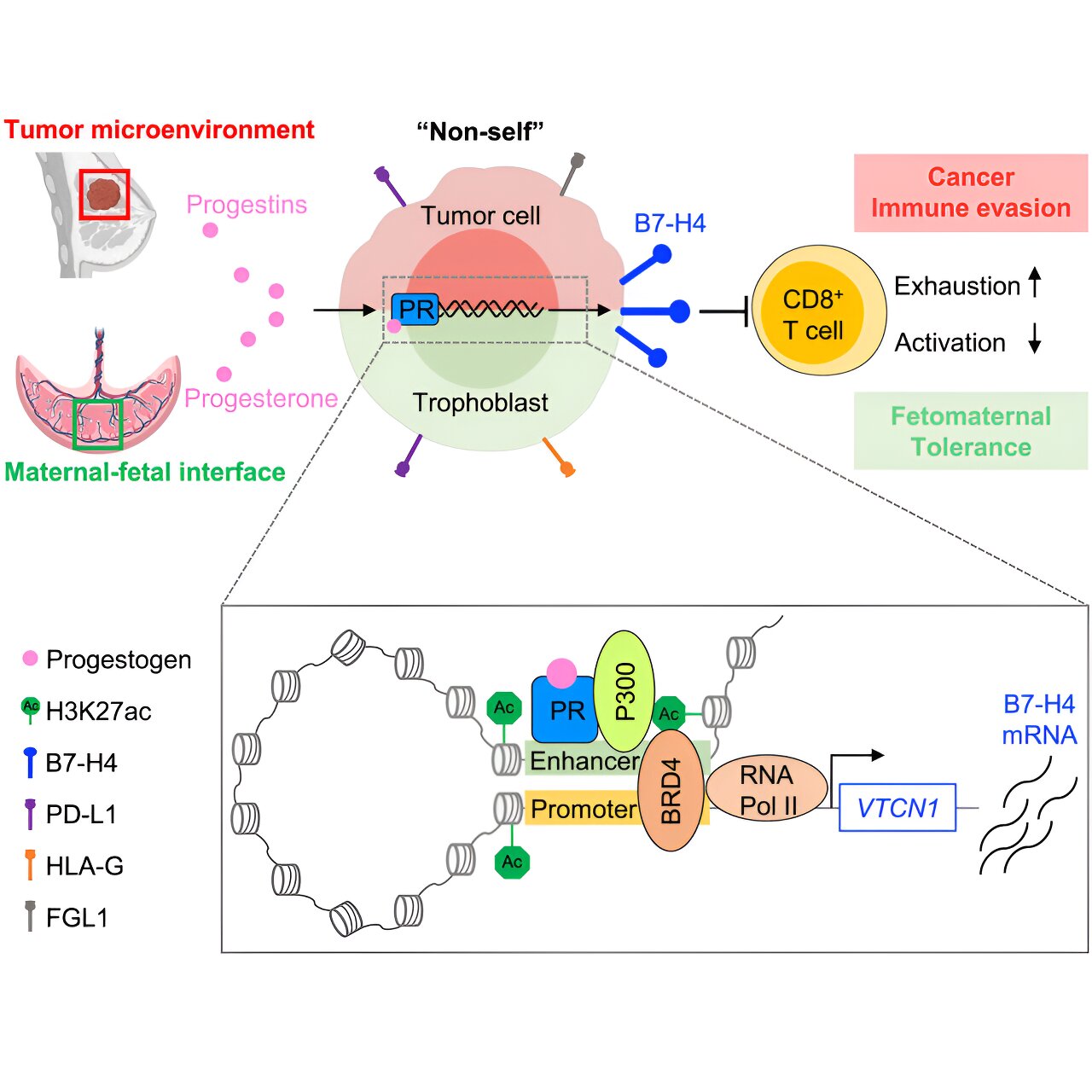To understand why some cancers successfully circumvent the immune system to grow unchecked, researchers turned to pregnancy.
"In pregnancy, the immune system does not reject the growing fetus, so we know there must be mechanisms active in the placenta. In cancer, it’s the same thing: the growing tumor is not rejected by the immune system. It means the cancer cells have developed strategies to suppress immune rejection, the same as in pregnancy.
They found that indeed there is a molecular mechanism shared in cancer and pregnancy that suppresses the immune system. Block this mechanism, called B7-H4, and the immune system revs up to slow cancer’s growth. Looking at mouse models and cell lines of breast and gynecologic cancers, the researchers identified the hormone progesterone as a key regulator of the B7-H4 immune checkpoint.
Progestogen-driven B7-H4 contributes to onco-fetal immune tolerance
Highlights
•B7-H4 contributes to the onco-fetal immune tolerance
•Progesterone drives B7-H4 expression via the PR-P300-BRD4 axis
•B7-H4 expression is controlled by the −58 kb enhancer
•PR antagonist or selective BRD4 degrader sensitizes B7-H4+ tumors to immunotherapy


